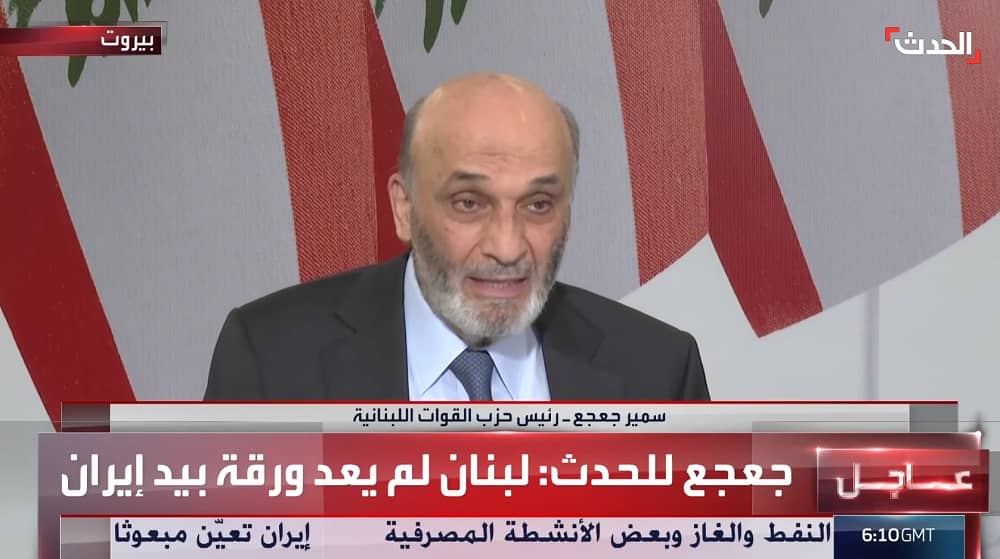Facebook
Twitter
LinkedIn
Pinterest
Reddit
Email
Print
 Samir Geagea Interview with Al-Hadath. The subtitle reads: “Lebanon is no longer a card in Iran’s hand
Samir Geagea Interview with Al-Hadath. The subtitle reads: “Lebanon is no longer a card in Iran’s hand
Samir Geagea, leader of the Lebanese Forces Party, declared that Lebanon is no longer a card in the hands of the Iranian regime. In his remarks, Geagea emphasized the diminishing regional dominance of the clerical regime and its waning influence in countries like Iraq and Lebanon.
During an interview with al-Hadath TV on January 13, he stated, “Lebanon is no longer a tool the Iranian regime can use.” Pointing to Iraq, he added, “The process of limiting the Iranian regime’s influence in Iraq has begun.” Geagea described these developments as signs of the regime’s growing weakness in achieving its regional ambitions. He urged regional countries to seize this opportunity to rebuild their independence and stability.
These statements come at a time when the Iranian regime faces mounting internal crises, including widespread protests and economic hardship, as well as increasing international isolation. The regime, once boasting control over four Arab capitals—Baghdad, Damascus, Beirut, and Sanaa—has seen its hold weaken, with Geagea asserting that the influence in these regions has brought more destruction than control.
He criticized the regime’s actions in Syria, Yemen, and Iraq, noting that these countries have suffered severely under Tehran’s interventionist policies. Geagea expressed hope that Iran’s nuclear ambitions and its ballistic missile programs could be resolved without further confrontation, but he stressed that the region must confront the broader challenge posed by the Iranian regime’s destabilizing strategies.
#Iran News: Beirut Airport’s Second Iranian Flight Inspection Heightens Tehran’s Unease Over Waning Influence in #Lebanonhttps://t.co/WelqJ5zeOV
— NCRI-FAC (@iran_policy) January 5, 2025
Recent actions by Lebanon reflect this shift. Over the past week, Lebanese authorities conducted unprecedented inspections of Iranian Mahan Air flights at Beirut’s Rafic Hariri International Airport. These inspections, described by Lebanese Interior Minister Bassam Mawlawi as necessary for ensuring security and sovereignty, revealed growing efforts to curtail Iran’s logistical support to Hezbollah, a key proxy in Tehran’s regional strategy. Such moves underscore Lebanon’s intent to assert its independence and reduce Tehran’s operational leverage within its borders.
The recent election of army commander General Joseph Aoun as Lebanon’s president, ending a two-year political deadlock, further signifies a shift in the nation’s political landscape. Aoun’s presidency, supported by a broad parliamentary majority, is seen as a move towards restoring Lebanon’s sovereignty and stability, potentially challenging Hezbollah’s influence within the country.
Following Aoun’s election, Nawaf Salam, a prominent diplomat and head of the International Court of Justice, was appointed as Lebanon’s new prime minister. Salam’s nomination, backed by international supporters, is expected to further diminish Tehran’s sway over Lebanese affairs.